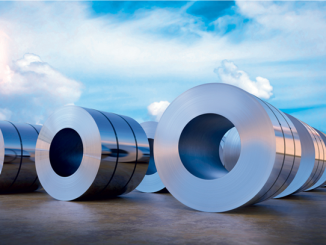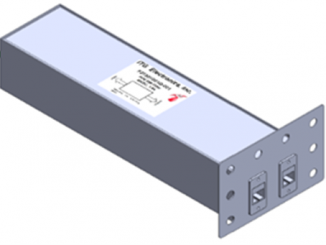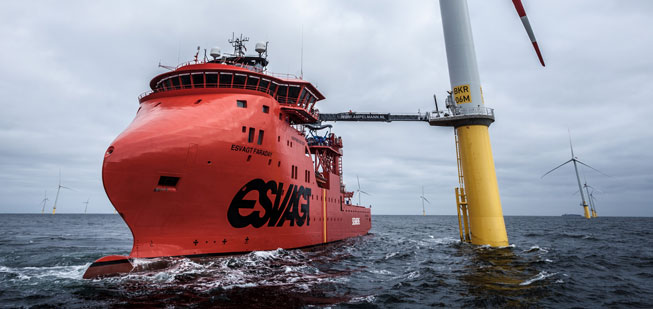
In the waters of the North and Baltic seas, it is not only wind turbines that are employing high-energy magnetic systems. Due to the enterprising capabilities of Norwegian Electric Systems, more ferries and commercial vessels are going hybrid-electric and full electric powered by NES propulsion systems many of which include the company’s special-built motors, generators and transformers designed to withstand extremely rugged marine conditions through rough seas and ice.
The photo above shows one of the vessels in a milestone series of orders for NES, electrifying the propulsion system and adding its navigation and control systems to multiple vessels belonging to ESVAGT which operates service ships for offshore wind farms. The latest order, worth NOK 21 million, involved installing NES’ integrated automation system, navigation and communication package with its Concept Bridge. Based in Denmark, ESVAGT is a dedicated provider of safety and support at sea. Its fleet of more than 40 vessels provide service and rescue operations in offshore waters, particularly serving offshore oil & gas and windfarm operations.
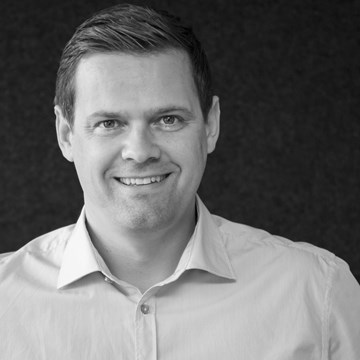
“NES have previously delivered propulsion systems to ESVAGT. The fact that we have now sold ten concept solutions with automation and bridge solutions, as well as five propulsion systems to one and the same customer, is a milestone for us,” says Svein Ove Farstad of NES, general manager sales and marketing. The first equipment package with engineering for the latest order was planned for delivery in March.
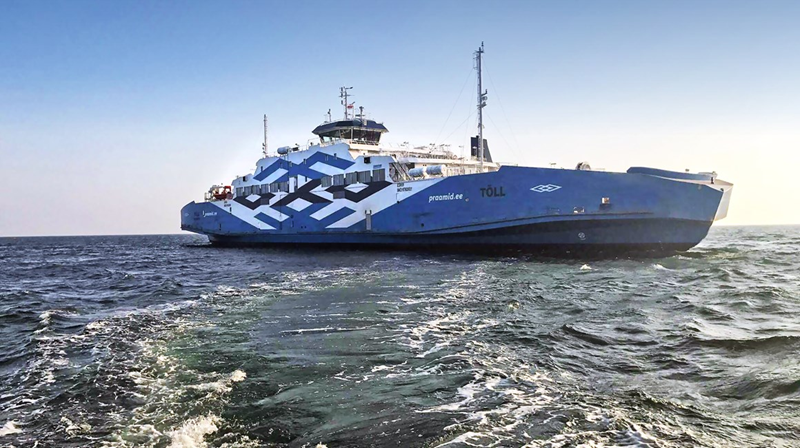
In another recent project, NES added its transformers to an Estonian ferry in which it upgraded the vessel’s diesel electric propulsion system to a battery-hybrid system. The project was expected to reduce the consumption of diesel fuel by one fifth as a result. NES has equipped numerous ferries in the region with battery power, some retrofits and others new shipbuilding.

NES motors are robust machines designed for continuous duty in tough marine environments. The company offers a wide range of asynchronous motors as well as permanent magnet machines for high torque/low speed or special demand for high efficiency and when low weight is required.
The double jacket motors represent the latest generation of its asynchronous motors, designed for marine heavy-duty applications where limited space and natural ventilation are key factors. The double jacket cooling system has proven to be a superior design for variable speed main propeller and thruster applications with its high output to size ratio and a high degree of protection towards salient and humid environments, says the company. They are particularly silent emitting up to five times less noise than conventional air-cooled motors.

Designed for high reliability even in the worst operating environment, NES generators feature long life endurance of electrical components and housing. They are impregnated with high-grade resin by vacuum pressure impregnation (VPI). VPI uses vacuum and pressure to seal porous materials with varnish or resin, a process used primarily for high-voltage motors and generators to fill gaps in materials to create a void free insulation. They are also equipped with PT 100 sensors for temperature monitoring of stator winding and bearings, and an additional protection against hostile environmental conditions (tropicalization) is provided as standard.
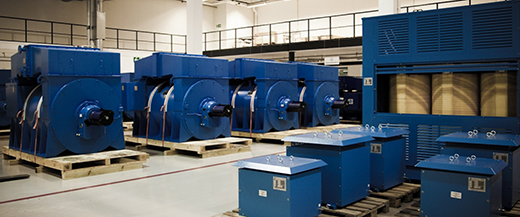
NES also builds a complete range of low and medium voltage transformers for marine applications. The transformers are designed to offer not only the best possible reliability for marine systems with special attention on inrush current in order to prevent short circuiting. Its portfolio includes marine distribution transformers, step-down transformers, auto transformers and multi-winding transformers. All windings are vacuum pressure impregnated (VPI) with high grade resin in order to withstand the magnitude of mechanical and electrical shocks and vibrations that can be expected in marine environments.
Based in the seaport of Bergen, NES is located in the heart of the maritime clusters on the west coast of Norway fronting the North Sea. The maritime clusters are home to a unique concentration of maritime companies, specialist research and educational institutions focused on green innovation for oceans of the future.
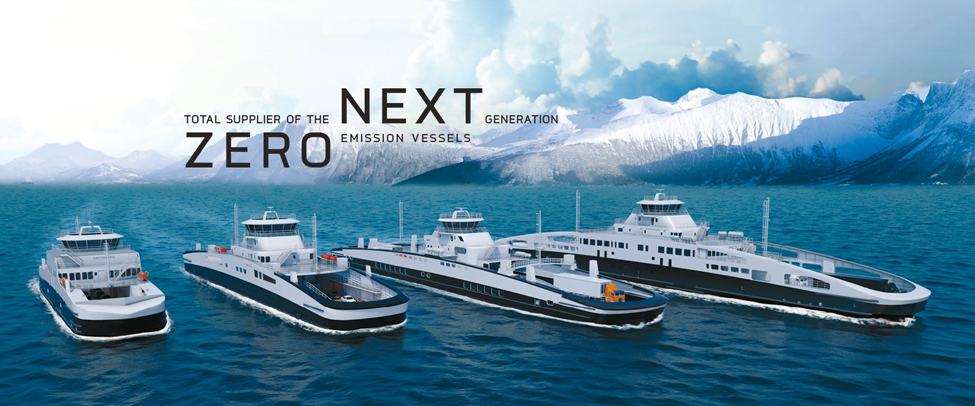
They are also home to its parent company, Havyard Group ASA, a ship technology company specialized in the design and construction of zero emission vessels. Havyard Ship Technology operates its own shipyard in Leirvik, at the mouth of Norway’s and northern Europe’s longest fjord, the Sogne Fjord, and provides zero emission design and technology to other shipbuilders worldwide. NES was established in 2009 as a supplier of advanced diesel electric, hybrid electric, and 100% electric propulsion systems for the global marine market. Last year, it merged with NCS, a sister company in the Havyard Group, adding to its product range the automation and navigation/bridge systems.


